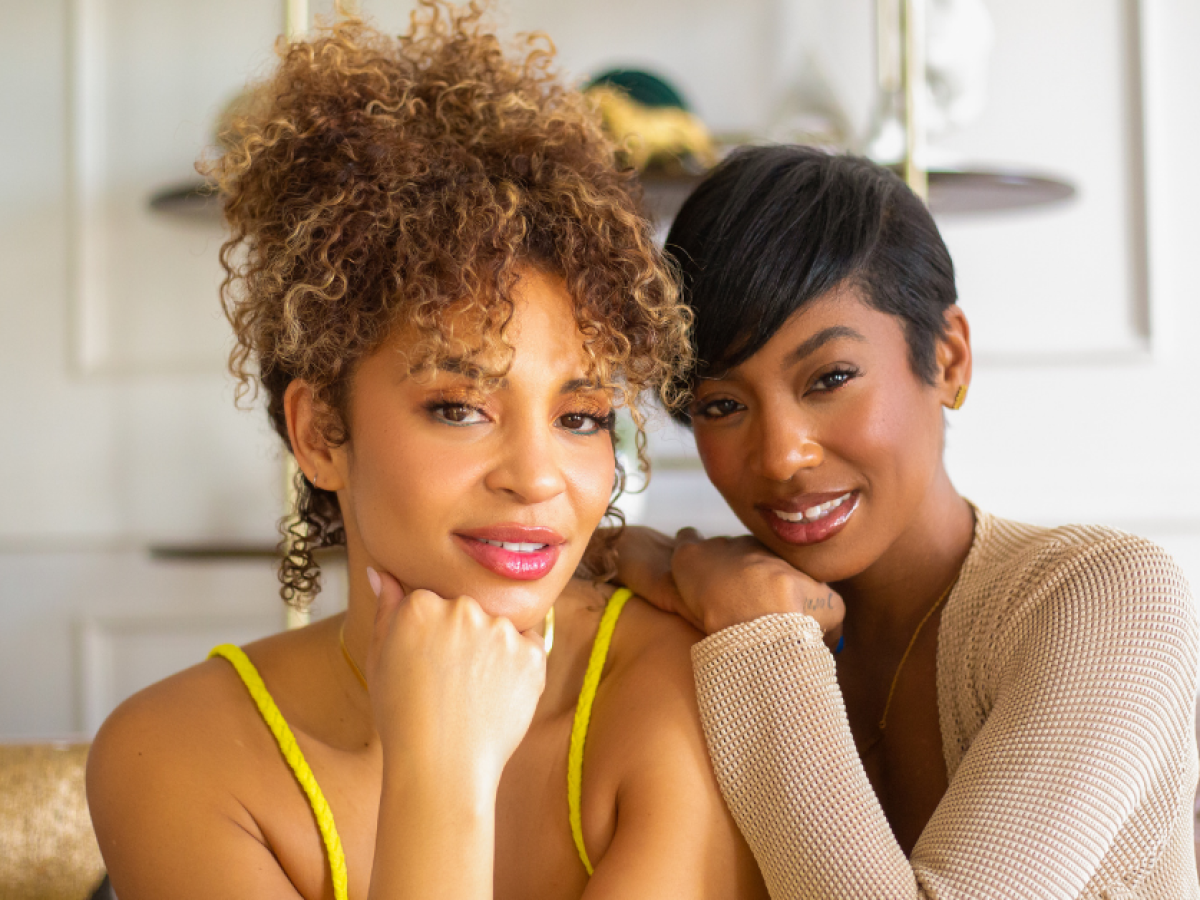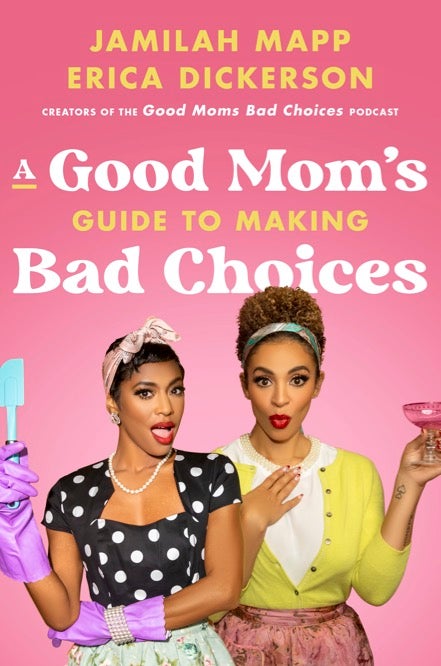
Moms arguably have the most difficult job in the world, and they also tend to have the toughest crowd to contend with. Put a “single” in front of “mom” and the crowd gets even tougher. Erica Dickerson and Jamilah Mapp know the challenges of single motherhood all too well. They’ve built a thriving brand by sharing their experiences as unconventional Black single moms with the world via their podcast Good Moms Bad Choices.
Both mothers of one, their platform started in 2018, born out of the desire to share their multifaceted reality. It’s a refreshing shift from the one-dimensional story of damnation and doom we tend to hear about Black single moms via the likes of government-led studies and hoteps online.
Over the past five years, the California natives have built a community of over 140,000 followers. I’m one of them. As a single mom who has listened to the podcast for some time, I can attest to the fact that it’s one that’s made me feel seen and thoroughly entertained. I’ve learned so much about redefining motherhood, sexual liberation, healing and manifestation for myself from these besties.
Mapp and Dickerson have since moved beyond just the four walls of recording studios and now offer other safe spaces for women. This includes their Good Vibe Retreat, Confessions of a Good Mom tours, and now, their first book, A Good Mom’s Guide to Making Bad Choices, which the universe brought their way. The work is published by HarperOne, an imprint of HarperCollins, and will be released on May 2.
“It wasn’t something we were actively pursuing. It really found us,” Mapp tells ESSENCE.
Dickerson interjects to narrate the story of how the duo landed the book deal. “We got a brand deal through House of Intuition. It’s a Witchy store,” she says. “The head of marketing was like, ‘Hey, I told my husband about your podcast and he’s a book agent. Would you wanna take a meeting with him?’”
A Good Mom’s Guide to Making Bad Choices challenges women to redefine what a “good” mom is. This is a journey Mapp and Dickerson have been on openly since meeting. Healing from past traumas, deciding who they want to be, and breaking down every misogynistic box the patriarchy attempts to place them in have been key aspects of that journey. Luckily, they’ve had each other to lean on, elucidating the importance of community.

The book also teaches women that it’s ok to make mistakes. This is an affirming message for mothers, whose kids often get a front-row view of their mistakes.
Mapp says she’s made plenty of them along the way but apologizing to her daughter has made all the difference. Like many of us, she comes from a generation of parents who don’t believe in saying sorry. However, she wants to take a different approach as she raises her child.
“I advocate for apologizing to your child,” she says, “upfront, directly like a big girl.” Mapp adds that she lets her daughter know that mistakes are inevitable.
“I’m always advocating for her being human and a part of being human is making bad choices,” she says.
Redefining motherhood and doing it your way sometimes means you end up dealing with the undesirable effects of “good” choices too. For Dickerson, one of those choices is spending long periods away from her daughter when she’s on the road for retreats and tours. Moms who have chosen to carve an identity for themselves outside of motherhood can relate with how that can lead to mom guilt.
“Being away from my child is something that I struggle with a lot even though her father is gone way more than I am,” Dickerson says. “I know I’m working and I know I’m doing what I’m supposed to be doing. I also know that I’m there for her–I show up, I pay attention. But I still struggle with that.”
For the brave moms out there ready to do motherhood on their own terms, Dickerson says the first step is to stop judging other people and yourself. When we judge other moms, we’re often projecting—putting negative feelings had about one’s self onto others. Instead of projecting, think about what suppressed needs you have that aren’t being met. One way to do this is by giving yourself permission to figure out who you are. These are solid words of wisdom Mapp shares.
“Just be honest with yourself about who you are and what you want. A lot of people are not being honest with themselves,” she says.







The worst that can happen when you’re candid about who you want to be is that you find a clearer path to a fulfilled life as a mom. All of these themes and more will be covered in the book, which can be pre-ordered from retailers like Target, Barnes & Noble, and Amazon.
We couldn’t end our chat without finding out what core message the ladies wanted readers to get from the work. After a thoughtful pause, Dickerson says it’s to know that “You make the rules.”
“You are not obligated to follow your parents’ motherhood, your sister’s motherhood, to follow that girl on Instagram who’s posting beautiful pictures, fake a– motherhood,” she laughs. “You make the rules of what works for you and what makes you feel good and makes you show up as your highest selves that you can pour into your child. And you go find the tribe and the people that support that.”





